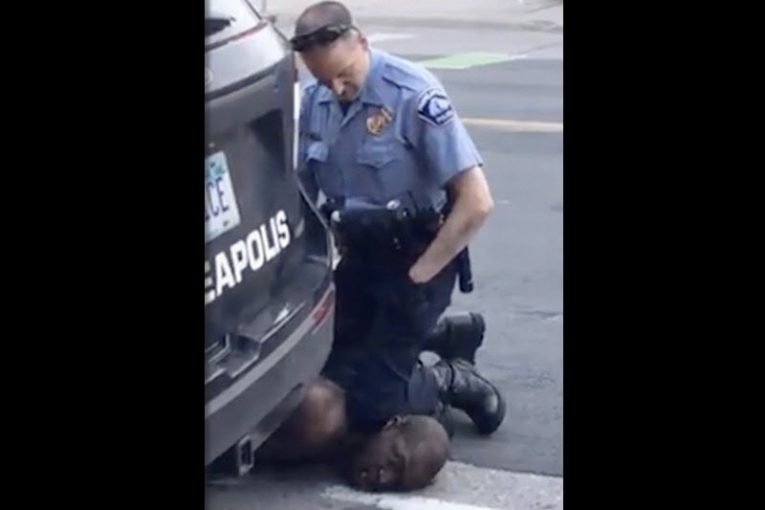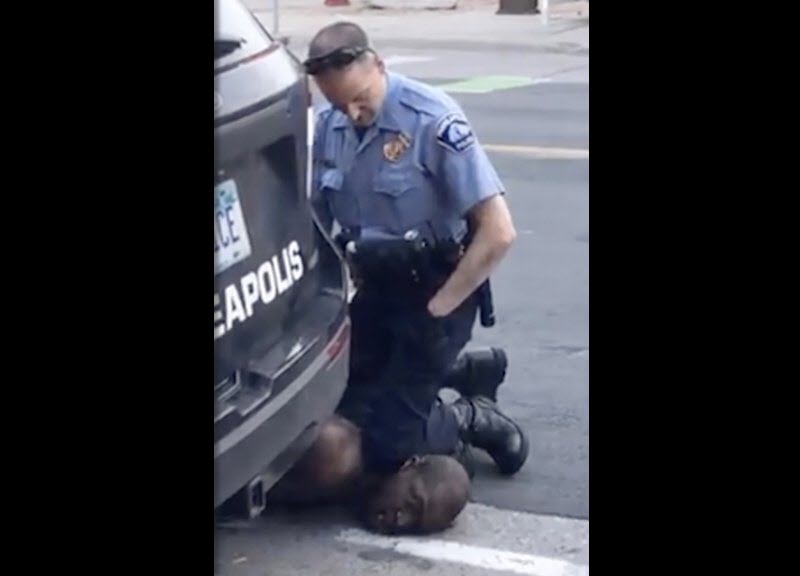

By Stephanie Boulos and Macy Lu
MINNEAPOLIS, MN – Jury selection began this Tuesday for the trial of former Minneapolis Police Officer Derek Chauvin, who was charged with the death of George Floyd—of nine individuals chosen from a pool of potential candidates, the court retained three jurors the first day.
All jurors were randomly sampled months ago and had completed a lengthy and detailed questionnaire assessing their qualifications. Many of the questions Judge Peter Cahill and the counsels posed Tuesday were based on the answers respective jurors had provided in the questionnaire.
Prior to the start of the selection process, Judge Cahill ruled on a series of motions pertaining to the kind of information that witnesses can present during the trial.
First, he recognized that discussion regarding the training Chauvin received prior to his arrest of Floyd was an appropriate and relevant topic for the trial.
Second, he barred officers who were present on the scene during or after the arrest from speculating on what they would have done in Chauvin’s place—experts and training officers will instead stipulate to the legality of Chauvin’s actions.
Third, he concluded that, while it is reasonable for a firefighter witness to “describe what she saw,” her “training experience,” or her concern for Floyd’s medical distress on scene, she cannot  opine on “how she could have saved him” had she acted differently—as that requires “expertise” beyond her field of knowledge.
opine on “how she could have saved him” had she acted differently—as that requires “expertise” beyond her field of knowledge.
For the last motion, Judge Cahill ruled that the counsels can refer to the defendant’s “dates of employment since he is no longer employed by the Minneapolis Police Department,” however, they may not discuss why Chief Medaria Arradondo decided to terminate Chauvin to avoid tangential dialogue during the trial.
With the motions concluded, the court began jury selection. In the morning session, Judge Cahill and the attorneys rejected all but one of the five jurors questioned.
A soft-spoken mother of three, Juror Number One expressed concerns that her language proficiency would affect her qualification. Though she rated her comprehension as “seven or eight” on a scale of 10, she also admitted that she relied on her spouse to read and google the meaning of various questions.
When asked to clarify why she left certain questions blank such as what she remembered or heard about the case, the juror answered, “It’s because I don’t understand.”
However, Judge Cahill underscored, “It did not appear that it was the language per say that was causing difficulties. It was more the—she’s not a sophisticated juror…given that there was some concern over her lack of understanding of legal terms.”
In between questioning Juror Number One and Juror Number Two, Judge Cahill notified the court that apparently those watching the live session could “see vague outlines” of the jurors reflected in the plexiglass shielding the stand from which the counsels delivered questions.
Concerned for the anonymity of the jurors, he ordered the court to remove the plexiglass during the lunch hour.
Juror Number Two, a chemist who demonstrated proficiency in using a scientific framework in decision-making and who had never seen Floyd’s arrest video, was the only one accepted onto the jury from the morning session.
The court dismissed Juror Number Three after she candidly confessed that, since she fell “into the bucket of strong opinions,” she was hesitant to “promise impartiality” based on her pre-established “opinions and personal experiences.”
After she departed the courtroom, Judge Cahill cautioned the lawyers against “follow[ing] up too closely to what’s in the questionnaire about their background,” for fear of giving away their identity. Rather, he instructed them to adhere to “generalities to protect their anonymity.”
They also released Juror Number Four after learning that he, too, had pre-established opinions on the legality of the choke hold Chauvin had employed during Floyd’s arrest, based on his personal martial arts experience.
Prior to reaching this conclusion, state prosecutors made a Batson challenge to dispute the strike against Juror Number Four, stating that he was the second person of color the defense had struck today and demanding that they give a “race-neutral explanation” for this second strike.
In response, Defense Attorney Eric Nelson contended that since Number Four insinuated that “he was willing to re-examine those opinions, but only upon essentially providing him evidence and proof contrary to his opinions,” he lacks the presumption of innocence required of all qualified jurors. Judge Cahill sided with the defense argument.
The afternoon of the trial picked up with the state striking the eighth juror for several areas of concern, ranging from his opinions on the Black Lives and Blue Lives movements, to his concern of his safety.
The juror indicated his respect for people committed to “protecting their community” and his opinion of not second guessing police officers’ decisions. As a result, he was dismissed.
Then the ninth juror was questioned, a woman with Type 1 diabetes and a person of color. This juror cited having an “excited” reaction to being summoned to jury duty.
After a deliberate discussion on her ability to be impartial, several areas of interest came to discussion, the first of which being her “somewhat negative” impression of Chauvin, her relation to a family member in the police force, and her overall experience and impression of police force behavior against people of color.
After indicating she does somewhat acknowledge that people of color are more likely to be targeted by police force in Minneapolis, she reassured all at trial of her ability to remain open minded throughout the trial.
As a result she became the second juror to be seated for the trial.
Another potential juror was then promptly excused for his uncomfortableness and anxiety related to being selected for being on the jury. He also discussed his personal views on the Minneapolis Police Department, and the potential for corruption there.
The third juror to be seated was a self-described “honest” man, who said he had somewhat of a “negative view” of Chauvin, and was pressed on his opinions over the presence of drugs in this case, in his opinion.
After explaining his prior knowledge and viewing of the recording of Floyd’s arrest, the juror indicated his opinion of Floyd’s past and the possibility of drugs and the potential relevance to this case.
He concluded by elaborating that the past is not going to affect his ability to remain uninfluenced throughout the trial, and as a result he was the third juror to be seated throughout the trial process Tuesday.
 Macy is a junior from Orange County, CA, studying Communications and English at UC Davis. She loves meeting people, reading, and writing.
Macy is a junior from Orange County, CA, studying Communications and English at UC Davis. She loves meeting people, reading, and writing.
To sign up for our new newsletter – Everyday Injustice – https://tinyurl.com/yyultcf9
Support our work – to become a sustaining at $5 – $10- $25 per month hit the link: